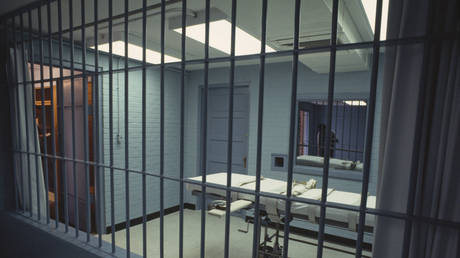Statement by
the Delegation of the State of Eritrea
at the
79th Ordinary Session of the African Commission on Human and Peoples’ Rights (ACHPR)
14-24 May 2023, Hybrid Session
On agenda item 3. “Human Rights Situation in Africa”
16 May 2024
Mr. Chairperson,
All Protocol Observed,
It gives me a great pleasure to update the 79th Session of the ACHPR, on the progress achieved and the challenges faced by Eritrea in promoting and protecting human and peoples’ rights.
As a result of the relentless efforts by the People and Government of Eritrea to safeguard and promote human rights, tangible achievements have been recorded across several sectors. As the African Union theme for 2024 is “Educate an African fit for the 21st Century: Building resilient education systems for increased access to inclusive, lifelong, quality, and relevant learning in Africa”, the statement focuses on education, while covering a few other sectors as well.
Mr. Chairperson,
The people and Government of Eritrea believe that education is the foundation of development, and that to provide equal educational opportunity means to provide equal opportunity for development. As a result, Eritrea’s development agenda considers the education sector as a top priority. In this vein, education is universal and provided for free from kindergarten to tertiary level, and primary education is mandatory. The literacy rate now stands at 85% and efforts are underway to make it universal in the near future.
Eritrea is committed to increasing access to education for girls at all levels, and consequently reducing gender disparity. As a result of various schemes implemented, retention rates among female students have increased significantly. Currently, female students constitute nearly half of the total student population in institutions of higher education.
Several measures have been taken to improve the participation, retention, and achievement of children in education, which includes increasing awareness among parents about the importance of keeping their children in school, improving feeding programs in schools, encouraging girls and young women by recognizing and rewarding exemplary and successful ones, and conducting motivational campaigns.
The Government of Eritrea is continuing its efforts to expand opportunities for inclusive education for children with disabilities, among others, through training of teachers and providing adequate facilities for the children.
Citizenship Education and Education for Sustainable Development are mainstreamed and integrated within different aspects of the national education system.
Technical and vocational education has increased through the formal system, and through workplace-based training.
In order to enhance the quality of education, the Government provides continuous pre-service and in-service trainings to upgrade the professional competency of teachers and school administrators.
Eritrea managed to expand access to education to all sectors of the society and improve quality, inter alia, through construction of new schools, reviewing curriculum and enhancing the capacity of teachers.
Mr. Chairperson,
The Government of Eritrea has maintained its focus on improving access to and quality of healthcare in the country. The programs and policies remain aligned with Africa’s Agenda 2063 and the SDGs. Public health services are heavily subsidized. Patients are required to make only nominal payments, while the services are free for those who cannot afford to pay.
The national health infrastructure has increased 3.7fold from 93 in 1991 to 347 as of December 2023. By complementing this with an elaborate network of all-weather rural roads, 70% of the population now lives within a 5 km radius of a functioning health facility.
Disease remedy and prevention have increased manifold, disease incidence decreased significantly and the average life expectancy at birth stood at 67.7 years in 2023, with almost 20 years increase from that of 1991.
Due to the substantial investments Eritrea has made in its Public Health System, the country has gone a long way in improving quality of and access to healthcare.
Mr. Chairperson,
In the sector of agriculture and food security, the Ministry of Agriculture has launched a Strategic Developmental Plan for the 2024-2028 period. The Plan has the goal of ensuring “Safe and nutritious food for everyone, everywhere”. The plan has five major pillars: agricultural land and natural resources management; crop development; livestock development; integrated livelihood and agribusiness support; and human and institutional capacity development.
Mr. Chairperson,
In the justice sector, last month the Ministry of Justice of Eritrea conducted a dialogue session focused on integrating Eritrean values into the country’s legal framework, as part of the ongoing efforts in legal reform for sustainable development. The focus was Eritrean values, while also considering African and global perspectives.
Mr. Chairperson,
The encouraging progress Eritrea’s registered in promoting and protecting human and peoples’ rights showcased above are achieved within the context of natural challenges such as drought and environmental problems associated with climate change; and man-made challenges such as the continued illegal sanctions imposed on Eritrea by the US and EU, instability and volatility at regional and international levels, and the unjust international system which oppresses and marginalizes developing countries.
On its part, Eritrea duly recognizes the importance of peace and security and thus is exerting efforts, in collaboration with its neighbouring countries, to promote peace and security in the Horn of Africa and Red Sea regions. Eritrea continues to advocate for a just and fair international system that benefits all peoples of the world.
In conclusion, I wish to reiterate Eritrea’s firm commitment for the promotion and protection of human and peoples’ rights, and for consolidating constructive engagements with the ACHPR.
I thank you!





+ There are no comments
Add yours